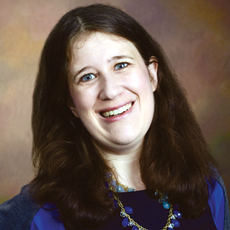
If there was a common refrain I heard from vendors and providers at annual meetings for Argentum this week and last month at the American College of Health Care Administrators, it was this: The competition for talent is intense.
While certainly not new, this was the first time I had providers go into depth with me about their hiring process, specifically around losing employees or receiving the same resumes as competitors.
One would hope we’re entering an era where more providers will look to vendors with senior living knowledge rather than rely on massive hiring websites. But it’s also helpful, in my opinion, to revisit what makes employees want to work at a location.
Christian Living Communities in Denver, for example, is in a state with a 3.7% unemployment rate. That makes it challenging to retain qualified workers in hospitality and senior care.
So CLC and its subsidiary, Cappella Living Solutions Support Office, began to look at ways to be recognized for the values and rewards they give employees. Their efforts allowed the communities of Holly Creek, Someren Glen, Bella Vita, Clermont Park and Dayspring Villa, Assisted Living Community each to be labeled as a Great Place to Work!
Over the past few years, CLC/Cappella began adding programs to entice employees to join, and stay.
“We had a series of strategic initiatives and one of them had to do with how to distinguish ourselves in the marketplace,” CLC’s Executive Director of Human Resources Jan Roth told me. “We asked, ‘How do we develop best practices and keep those people for a long time?’”
CLC had long had a scholarship program, where team members can receive up to $6,500 for critical need jobs. But after hearing how employees were struggling with college debt, CLC developed a new program, Roth explained. It’s funded by the company and allows people to pay down their debt by up to $1,200 a year. What the company asks for in return is that team members stay for a year and work at least 24 hours a week.
They also embraced flexible hours and pay options — including using PayActiv, which allows employees to obtain wages that have been earned but unpaid.
“PayActiv is fairly new to us — we had a salary advance program forever but there was a bureaucracy and you had to wait, so we really wanted a platform that would allow immediate access to earned wages,” Roth said. “It’s been very welcome to our team members.”
The company has a philosophy of “putting money back into our team members’ pockets,” she explained. Referral bonuses can be up to $300, while team members can also cash out their paid time off at the end of the year. A critical needs fund, where residents can submit monetary gifts, has been deployed more than a dozen times in the past year. The fund can provide up to $1,000 to a team member in a crisis, related to issues such as housing, medical bills or transportation needs.
“It’s a tough market in Denver. We really have to get innovative with how we can pay people,” Roth said.
Last, but most critically, the company has funneled $1 million into wage adjustments, raising certified nursing aide wages some 23%, to a base of $16 an hour.
“We needed to get survival wages up to a level where people can rent an apartment in Denver,” she said.
Roth isn’t resting on her laurels: The leadership team is looking at a sabbatical program for directors of nursing, and transportation options, including a city program where a team member could receive a new car to pick up coworkers.
The hard work appears to be paying off: In a February 2019 survey, CLC/Cappella found that their employee retention had increased by 5%. More than 90% of team members said they felt their work in senior care was more than “just a job,” and 85% said CLC/Cappella was a great place to work.
That’s great, of course. But it’s also reflective that there is no magic bullet in retention. It’s constantly innovating and having the dedication of people such as Roth to make team members’ lives a little easier.
Follow Senior Editor Elizabeth Newman @TigerELN.



